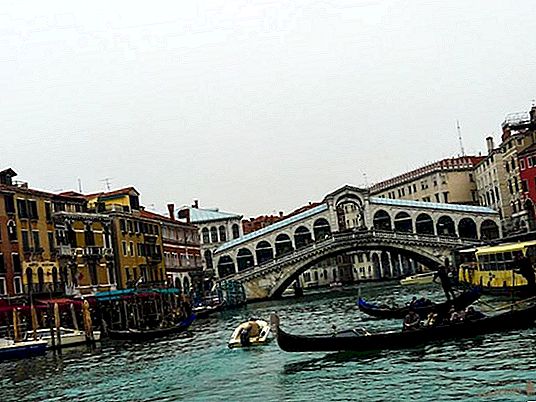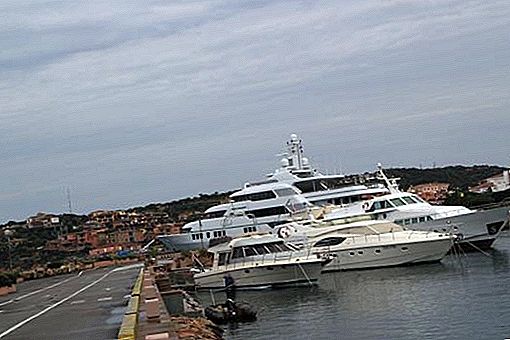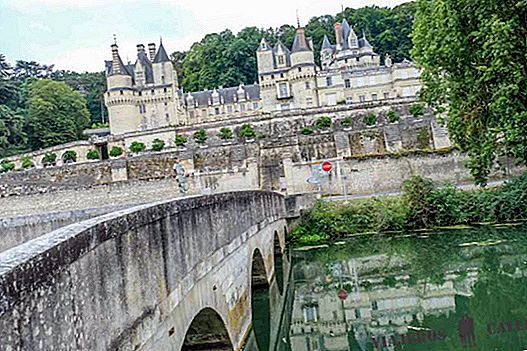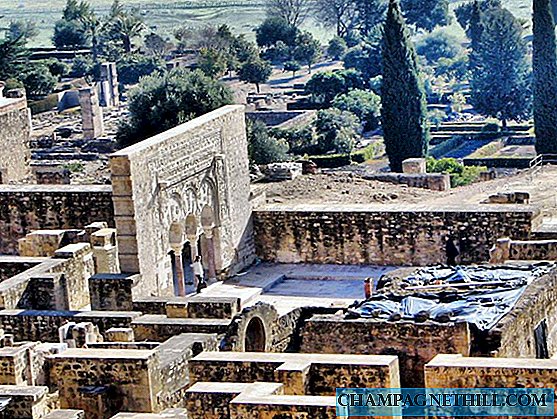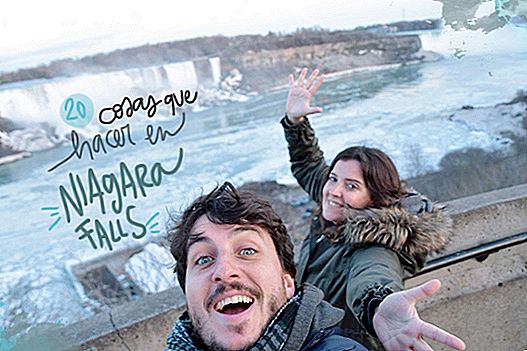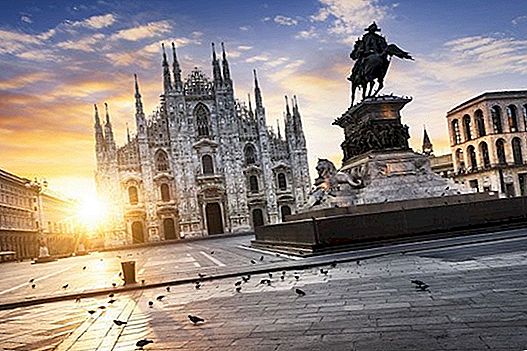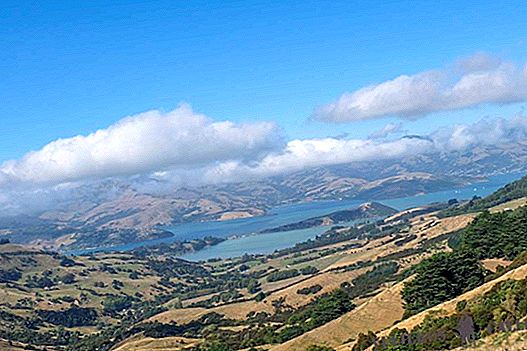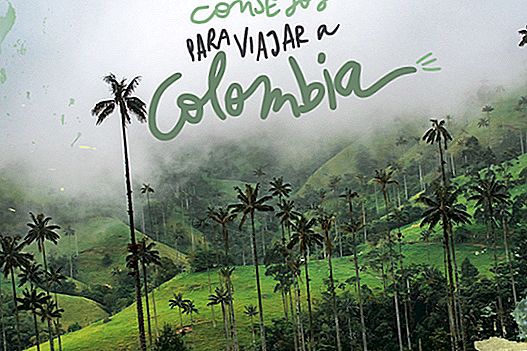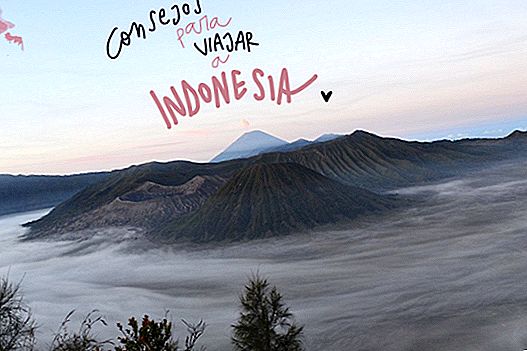
If you have started reading these lines, it is very likely that you are thinking of traveling very soon to Indonesia, or you may even already have your plane tickets. How exciting it is to start dreaming about a new destination ... that's when a journey really begins! Claro But of course, it is also when millions of questions about that country that we sometimes know little or nothing begin to come to mind. Quiet, we have all gone through that and it is normal to feel a little dizzy. But do not panic, because then we will give you a lot of Tips for traveling to Indonesia... and don't screw it up! 😉
No visa required for most nationalities and for stays that do not exceed 30 days. Upon arrival at the airport you will have to fill in an entry card and that's it. Remember that your passport must have a minimum validity of 6 months and that you have to have a ticket to leave the country. Here is a map that summarizes the visa policy for Indonesia by country:
Wikipedia.org
If you plan to stay more than 30 days, then you will need to manage the 60 day visa and you pay ... sorry! You can do it in two ways:
That is how you are in Spain It is best to do all the paperwork before the start of your trip through the Indonesian Embassy in Madrid (if you are from another nationality you will have to consult it with the Indonesian embassy in your country). You will have to fill out and submit a form along with a copy of the first page of your passport, your ID, round-trip flights, proof of the first three nights of accommodation, two passport-sized photos with white background and pay the 45€ What does the visa cost?
B. It can be done on one's own airport on arrival. To do this, go to the VISA ON ARRIVAL sample and pay a fee of 500,000 IDR (about € 35), which you can also pay in Euros or other currencies. The negative part is that before the end of the first 30 days of visa, the calvary of the trips to the immigration office to get the other 30 days of permission. Basically there are 3 visits:
- In the first one you will have to fill out and submit a form and leave your passport there (which you will not see again until the last of the “excursions” to immigration). You must also provide a photocopy of the first page of the passport, of the page where they put the entry stamp at the airport, of the departure flight and pay another 500,000 IDR.
- A week later, a new trip to immigration to take a couple of photos and leave your prints ...
- And finally, another week later you will recover your passport and the desire to have to go through this boring process that wastes a lot of time unnecessarily will be taken away.
Important: If you do not pay the VISA ON ARRIVAL fee upon arrival, you cannot extend your stay more than 30 days even if you want. In both cases remember that the validity of your passport must be equal to or greater than 6 months.
In the following link you will find all the immigration offices of Indonesia.
If we consider the weather, the best period to travel to Indonesia is the dry season, between the months of May to September, when the days are dry and sunny. During the wet season (approximately from October to April) temperatures remain high and rains normally fall in the form of showers that do not usually last more than a couple of hours, which is not a big problem to travel around the country during this time.
During the months of July and August, Christmas, New Year's Eve and Easter, it is when the country receives the largest number of visitors, it is more difficult to find accommodation and prices are higher (especially on the island of Bali).
Given the above, the best months to visit Indonesia would be May, June and September... avoiding both rains and crowds. We leave you a table with the weather in Bali, to give you an idea:
Indonesia is one of the most populous countries on the planet with around 250 million inhabitants and has a huge area that is distributed in more than 17,000 islands. With these figures you can already imagine that the displacements are not always easy, nor fast, nor the most comfortable in the world.
Move between islands:
- PLANE. It is undoubtedly the fastest and most comfortable means of transport to travel to other destinations. There are a good number of low-cost operators currently operating in Indonesia with fairly competitive prices, for example AirAsia. It is advisable to take a look at the website of Skyscanner to compare between different airlines, and if you have doubts about the reputation of each company, check its note on the website of Skytrax.
- SHIP. Given that Indonesia is the largest archipelago in the world, it is understood that water transport is the most important in the entire country. From the simplest boats, which doubtfully meet certain safety standards and normally cover short distances, to larger, more comfortable and modern ferries for long distances.
The local ferries for short distances and in which you can embark your own vehicle they are usually quite slow, but also very cheap. For faster passenger-only journeys there is the somewhat more expensive option of the “fast-boats" In both cases and to get the best prices, you will have to buy the tickets directly where the boats leave and avoid intermediaries or online purchases ... Although of course these possibilities exist and sometimes include transportation to the port avoiding some extra headaches. To make them online reservations you can watch the web 12go.asia.
Move within the islands:
- BUS. The bus is a very common means of transport in the country, being able to reach almost anywhere with very little money. The standards vary greatly depending on the company and the destinations, but it is important not to forget that the travel times to travel certain distances can become eternal.
- BEMO. The bemos (or what is the same minibuses and vans adapted for the transport of passengers) are a fundamental means of transport for the locals in short distance trips, especially in metropolitan areas. They do not have an “official” route network, but they cover fixed routes. It is best to ask for prices and the place to go down as soon as you go to the bemo.
- TRAIN. The islands of Java Y Sumatra They are the ones with the best railway network (especially Java). Greater comfort, central stations and more reliable schedules, are the main advantages of the train with respect to the bus. On this website you will find a lot of useful information to get around Indonesia by train
- CAR. If we take into account the prices of other means of transport and the stress that it can cause to get behind the wheel in a country like Indonesia, you probably don't even consider this alternative. But if the flexibility and freedom of traveling with your own vehicle makes you decide to rent a car, remember to have your international driving license in order. Even if they don't require it at the rental office, you can take a good dislike if you later meet the police.
- PRIVATE TRANSPORT. For a relatively good price (it will depend on your ability to negotiate and the number of people you are), you can hire a private driver to move by car or minivan through most tourist places, without having to think about anything but enjoy.
- MOTORCYCLE. The motorcycle is the daily bread of millions of Indonesians and the means of transport preferred by travelers in places like Bali and Lombok. The rental price per day varies between INR 30,000-60,000 (€ 2-4) per day. As with the car rental and, especially to avoid unnecessary problems with the police, it is best to have an international driving license. Do not forget to drive a scooter it's not a game and that if you've never done it before, Indonesia is not the best place to start doing it. Also do not forget to download maps.me on your mobile, essential to know where you are at all times.
* In places like the island of Bali it is a good idea to download mobile applications Gojek Y Grab to move quickly and economically by motorcycle (or car) with driver.
As we have told you before, Indonesia is a very large country and sometimes too much time is lost in the displacements. Talking about a minimum of days needed to get to know a country is quite personal, we know that most of the time you can't count on all the time one would want.
It also depends on personal tastes and preferences when traveling, the type of trip you want to make, how many places you want to visit, how much you are willing to move ...
But well, although there is no magic number, our recommendation is that you dedicate a minimum between three weeks and one month to know the main attractions and have a fairly complete travel experience.
So you can get a better idea of the time you need to know the country, we tell you what some of our essentials are:
- The beautiful and super special Bali Island. With opinions for all tastes, nothing better than visiting a place to draw your own conclusions. For us, the Island of the Gods deserves a visit of several days. More information and tips.
- Your neighbour Lombok Island, practically unknown to travelers until a few years ago, it has a wild nature so rich that you will lack days to explore its beaches, waterfalls and the second highest volcano in the country, the Rinjani. More information (coming soon).
- The Borobudur temple in Yogyakarta (Java). Watching the sunrise between bell-shaped stupas and Buddha statues will be a moment you will always remember.
- Although if we talk about magical sunrises, the one of the Mount bromine It is one of the most beautiful and famous in the whole country. When you are at the top you will understand why. This was our experience.
- The dragons of Komodo National Park. Seeing free these incredible animals that can measure up to three meters and weigh almost 90 kilos, is a unique experience in the world.
- As is the opportunity to meet one of the two wild populations of orangutans of the world in the borneo island.
- The peculiar funerary and traditional rituals tongkonan houses in Tana Toraja, the best known region of the Sulawesi Island.
- The seabed of Bunaken Y Raja Ampat, two of the best places in the world to dive.
When you comment with friends and family that you are going to travel to Indonesia, the same some "nice" brings out words like: volcano, earthquake, tsunami... And it is also likely that you get a little bit of misery when you hear them. We are not going to discover anything new, Indonesia is included in the list of countries of the Pacific Ring of Fire and that means that in this area there is a intense seismic and volcanic activity. But who can predict what will happen? In addition, seeing the glass always half full, being part of this blissful belt of Fire, Indonesia has some of the most spectacular landscapes in the world. So be cautious when visiting certain places, always stay informed ... but above all enjoy and do not think about everything else 😉
Terrorism, drugs, traffic accidents... These are other of those "pretty" words that may come to your mind before you start your trip. Although it is true that there are things beyond our control, in general terms Indonesia is a safe country. Of course it should be common sense, avoid certain areas and situations of risk, the use of drugs, respect the rules of conduct and customs of the country and be informed of possible alerts of any kind that may occur during our trip. For this you can check the website of the Ministry of Foreign Affairs.
Refering to Health, it is recommended that before traveling to Indonesia visit a international vaccination center in Spain. There they will inform you about the vaccines you need (although there is no mandatory one) and they will also give you all kinds of useful tips to stay healthy while you are traveling. You can generate the recommendations here, even if we give you the results:
Recommended vaccines:
- Hepatitis A: This vaccine is recommended, if the disease has not passed or been vaccinated before.
- Hepatitis B: depending on the planned risk activities, the recommendation of this vaccine should be assessed, if the disease has not passed or been vaccinated before.
- Japanese encephalitis: Vaccination of Japanese encephalitis is recommended in some rural areas of the country, so you should consult an International Vaccination Center.
- Tetanus-Diphtheria: All people should have updated immunization against diphtheria tetanus. This vaccine is recommended to all travelers regardless of travel, as it is a disease of worldwide distribution. The vaccine is given at any service or health center.
- Typhoid fever: This vaccine is recommended since the risk of contracting this disease is associated with low hygienic conditions in relation to the preparation and handling of food, with the control of the quality of drinking water and with those places where the disposal of wastewater It is not controlled.
We remind you beforehand that you will travel to a tropical country, where the happy mosquitoes They can not only leave you a peck. Dengue and malaria are present in the country (malaria only in certain areas), so do not forget to always have mosquito repellent on hand, especially in humid areas and in the most dangerous hours (at sunrise and sunset) . A good repellent is the Goibi. It is also advised to wear appropriate clothing that covers most of the body.
Also avoid tap water, drinks with ice of doubtful origin, unpeeled fruits and raw vegetables ... And despite this, it is possible that the "Bali-Belly" (or something like traveler's diarrhea) will take you out of the game someday . In those cases, Fortasec will be your best friend.
But our most important recommendation of all is that never travel without travel insurance, something absolutely essential. Here we tell you how to choose the best travel insurance.
You already know that this is one of our favorite parts of traveling and in Indonesia you can enjoy the food and much! 😉 Options for all tastes ... vegetarians, vegans and carnivores will find their favorite dish. Some of ours are:
- <Nasi Campur: the star dish of Indonesia. Rice accompanied with an infinite possibility of food ... tempeh, tofu, chicken, fish, vegetables, eggs, etc.
- Nasi Goreng: fried rice with a soy sauce and usually accompanied by vegetables, chicken and fried egg.
- Mie Goreng: exactly the same dish as the previous one but with noodles (mie) instead of rice (nasi).
- Gado Gado: vegetables boiled with tempeh, tofu and egg served with a peanut sauce on top.
- Bakso: noodle soup with a kind of meatballs.
- Kari Ayam: chicken curry cooked in coconut milk and accompanied by rice.
- Sate: meat skewers (usually chicken) that are prepared on the grill and that in Bali are always covered with a delicious peanut sauce.
- Babi Guling: roasted pork that is usually filled with a spicy mixture that usually includes turmeric, coriander seeds, lemongrass, black pepper and garlic. It is one of the favorite dishes in Bali (partly because the majority of the island's population is not Muslim).
- Cap-Cay: sauteed vegetables with oyster sauce.
- Rendang: Slow cooked beef stewed in coconut milk and a mixture of spices.
- Urap: it is a salad of steamed vegetables mixed with grated coconut and lime
Here we tell you more about the cuisine of Indonesia.
Let's talk about pasta ... and in this case not about eating;). The official currency of the country is the Indonesian Rupee (€ 1 ~ 15,000 IDR) and to get them with them it is best that take out money at an ATM. Today traveling without credit cards would be considered crazy and it is also advisable to carry at least two. We routinely use the BNEXT card, a very comfortable option for traveling that allows you to get money without charging you commissions. And we also carry the N26, which we also use for payments. Take others also in case any of them fail.
But be careful, there have been many cases of trick ATMs in which you clone card. That is why it is important that you use ATMs that are inside the banks (not in the street), that you check the plastic coupling where the card is inserted, that you cover the PIN with your hand and that you continuously check the movements in the App. To be safe at all, we recommend not loading the cards (Bnext and N26) with a lot of money and recharging them as needed, so in case of cloning, they do not make a big hole in your savings.
We recommend using these types of cards before buying rupees at your bank or changing money at the exchange offices once in Indonesia. That by the way, be very careful with this because one of themore frequent scams Travelers are the non-official exchange houses, where after counting and re-counting your money, they do the magic trick and a part of the money that belongs to you will never reach your pocket.
I recognize it, after already traveling for a few years, I am not yet able to make a backpack with nothing but what is strictly necessary. I don't take pride in it, but my favorite phrase is "just in case ...". To prevent you from falling into the same error as me, these are the things that necessarily have to be in your backpack ... Almost everything else will probably be dispensable:
- Thin and breathable clothing
- A sarong or sarong to enter the temples and at the same time can serve as a beach towel
- Swimsuit / Bikini
- Cap to protect the head from the sun
- A light raincoat and also a sweatshirt or sweater if you plan to make an excursion such as the Bromo or visit cooler areas
- Light and comfortable footwear for walking (closed) and sandals (open)
- A basic first aid kit, mosquito repellent and sunscreen cream
- A reusable bottle to fill it with water and reduce plastic consumption. In Indonesia you will find many accommodations with both cold and hot drinking water dispensers for teas and infusions
A adapter, the plugs are type C, as in Spain.
As in almost all Southeast Asian countries, in Indonesia you will also find WiFi connection Free in most accommodation, bars and restaurants. If in spite of that, you are one of those who need to have internet 24 hours a day, then you can do without problems with a SIM card Just get off the plane. Now, if you can live without internet for a couple more hours, avoid buying it directly at the airport because the prices are much more expensive than what you will find later in the local telephone shops.
Another option (not the cheapest one) is to buy a Special SIM to have internet in Indonesia before traveling and taking it from Spain. Holafly It is the most important company that offers this type of services (following the link you will have a 5% discount).
Telkomsel It is the most important company in the country with good calls and data packages or even only data at more than competitive prices. The 10Gb, 30 minutes and 30 SMS package costs 100,000 IDR. Remember to bring a released phone for the SIM to work. More information.
Here are a few more tips for a trip to Indonesia:
- Indonesia is the country with largest Muslim population in the world, about 90% of its inhabitants practice Islam. In addition to Islam, the government recognizes five other official religions, including Buddhism and Hinduism (majority religion on the island of Bali). This diversity of religions implies being attentive to different customs and try to show the maximum respect towards them. As for example, covering shoulders and knees when visiting temples and mosques.
- Respect also the one to have for the animals. Avoid riding elephants, swimming with dolphins that are in captive conditions and ultimately any type of tourist attraction that includes the exploitation of animals.
- It is not strange that in very tourist areas (especially in Bali), some police officers Expect money in exchange for missing a traffic violation (real or not) or even for providing services that you would actually be obliged to give. We know it is unfair, but the best way to avoid major problems is to pay. A small piece of advice is not to bring a lot of money in sight to try to make the "fine" go out as little as possible.
- The Bahasa It is the most spoken language in the country. It never hurts to learn some words or phrases, the locals appreciate it and almost always respond with a smile from ear to ear. At least you are:
- Kasih → Thank you
- Sama sama → You're welcome
- Ya / Tidak → Yes / No
- Selamat pagi → Good morning
- Selamat sore / malam → Good afternoon / nights
- If your visit to Bali matches the Nyepi or day of silence (in the month of March), you have to know that for 24 hours the island remains literally closed and that nobody can step on the street. So you know, take the opportunity to sleep, read, sunbathe or simply enjoy the “dolce far niente”.
These are all our Tips for traveling to Indonesia (and not screw it up). Do you miss any? What are your recommendations?

| Save on your trip |
| Compare and get flights cheap here |
| Find accommodation at the best prices here |
| Sign in Airbnb and get up € 34 discount here |
| Reservation activities and excursions in Spanish here |
| Hire the travel insurance IATI with a5% discount here |
| Reserve the airport transfers here |
| Find out how to take money out abroad without commissions here |
| Buy oneSIM card withdiscount to travel with internet here |
| The best books and travel guides here |
| All our articles about Indonesia |

